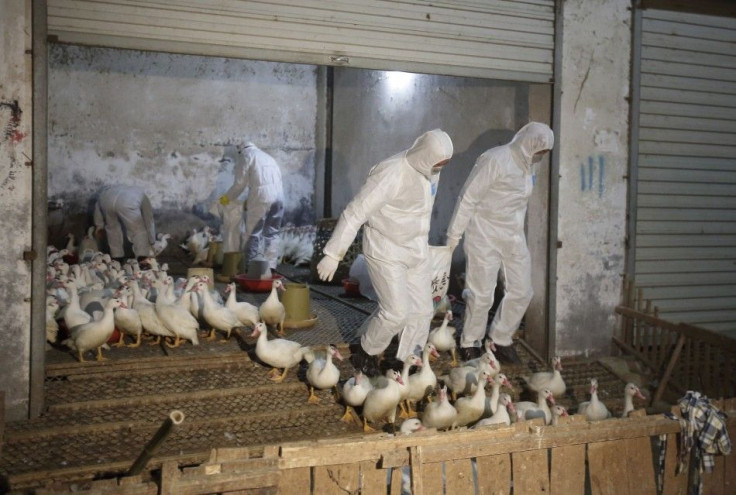Bird Flu Update: European Union Commission Enforces Curbs On Poultry : UK Says It Is At Low Risk

Following the scare about the outbreak of bird flu or avian flu as reported in the U.K and some more countries in the European Unon, the European Commission has announced some emergency measures to contain its further spread to other regions.
Precaution
Among the preventive steps are restrictions on the transport of poultry and eggs throughout The Netherlands. Officials believe that the disease may have spread to the U.K via Dutch or German route. In the U.K, a 10-km restriction zone has been established in Yorkshire where all poultry on a farm is being culled to prevent it from spreading further, reported Independent.
In a statement, the European Commission spokesman said these measures were aimed at "quickly bringing the disease under control" and "preventing highly pathogenic avian flu from spreading into more parts of Britain and The Netherlands as well as to other European countries.The spokesman claimed that the measures were also designed to minimise the disturbance to trade, as the busy Christmas season is approaching."
UK Says Low Risk
In the UK, the avian flu scare went public after a vet in Nafferton, near Driffield in East Yorkshire, raised the alarm over a duck believed to have caught avian flu at a farm. It was later confirmed by government sources also, which tested the strain of bird flu in East Yorkshire as H5N8, and said it was the same as in recent outbreaks in part of Europe. But the public have been told not to panic, though this is the first case of bird flu outbreak since 2008. This time, the outbreak does not involve H5N1 which was more fatal to humans.
Meanwhile, the Department for Environment, Food and Rural Affairs also said the risk to public health is very low. Though the strain is dangerous for bird life and can pose risk to humans, only close contacts with the affected birds will heighten the hazard. A Defra spokeswoman said, "Our laboratory at Weybridge has confirmed that the outbreak of avian influenza in East Yorkshire is the H5N8 strain," reported BBC. Environment Secretary Liz Truss also assuaged the public that the risk to public health posed by the virus is very low. She added that the Food Standards Agency has reconfirmed that the British public are not at risk, and chicken and turkey are safe to eat.
"We have taken immediate and robust action to control this outbreak and prevent any potential spread of infection," Ms Truss said.





















